Student Projects
Childpage navigation
Currently, the following student projects are available. Please contact the responsible supervisor and apply with your CV and transcripts.
In case you have project ideas related to any of these projects, take the opportunity and propose your own project!
We also offer Master Thesis and or exchange semesters at reknown universities around the world. Please contact us in case of interest!
Studies on Mechatronics
We offer students also to conduct their Studies on Mechatronics at our lab. In general, we recommend to do the Studies on Mechatronics in combination with the Bachelor Thesis, either as prepartory work the semester beofre or as extended study in parallel. If you want to do it independently, yiou can find prroposed projets also in the list below. Please directly apply with corresponsponding supervisor.
RL Finetuning for Generalized Quadruped Locomotion

This project investigates the potential of reinforcement learning (RL) fine-tuning to develop a single, universal locomotion policy for quadruped robots. Building on prior work in multi-terrain skill synthesis [1], we will probe the limits of generalization by systematically fine-tuning on an ever-expanding set of diverse environments. This incremental approach will test the hypothesis that a controller can learn to robustly navigate a vast range of terrains. As a potential extension, procedural terrain generation may be used to automatically create novel challenges, pushing the boundaries of policy robustness.
Keywords
Reinforcement Learning, Quadruped Locomotion
Labels
Master Thesis
Description
Work Packages
Requirements
Contact Details
More information
Open this project... call_made
Published since: 2025-06-17 , Earliest start: 2025-06-15
Organization Robotic Systems Lab
Hosts Schwarke Clemens , He Junzhe
Topics Information, Computing and Communication Sciences
Differentiable Simulation for Precise End-Effector Tracking
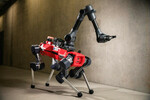
Unlock the potential of differentiable simulation on ALMA, a quadrupedal robot equipped with a robotic arm. Differentiable simulation enables precise gradient-based optimization, promising greater tracking accuracy and efficiency compared to standard reinforcement learning approaches. This project dives into advanced simulation and control techniques, paving the way for improvements in robotic trajectory tracking.
Keywords
Differentiable Simulation, Learning, ALMA
Labels
Semester Project , Bachelor Thesis , Master Thesis
Description
Work Packages
Requirements
Contact Details
More information
Open this project... call_made
Published since: 2025-06-17 , Earliest start: 2025-01-27
Organization Robotic Systems Lab
Hosts Mittal Mayank , Schwarke Clemens , Klemm Victor
Topics Information, Computing and Communication Sciences
Learning a Simulation-Trained Safety Critic for Safe Online Learning in Legged Robots

This project focuses on developing a safety critic—a model that predicts the safety of robot states—to enable safe online learning on legged robotic hardware. The safety critic is trained in simulation using labeled data from diverse robot behaviors, identifying states likely to lead to failure (e.g., falls). Once trained, the critic is deployed alongside a learning policy to restrict unsafe exploration, either by filtering dangerous actions or shaping the reward function. The goal is to allow adaptive behavior on real hardware while minimizing physical risk.
Keywords
safety critic, online learning
Labels
Master Thesis
Description
Contact Details
More information
Open this project... call_made
Published since: 2025-06-16
Organization Robotic Systems Lab
Hosts Li Chenhao , Li Chenhao , Li Chenhao , Li Chenhao
Topics Engineering and Technology
Data Driven Simulation for End-to-End Navigation

Investigate how neural rendering can become the backbone of comprehensive, next generation data-driven simulation
Keywords
Neural rendering, Simulation
Labels
Internship , Master Thesis
Description
Work Packages
Requirements
Contact Details
More information
Open this project... call_made
Published since: 2025-06-16 , Earliest start: 2025-01-27
Organization Robotic Systems Lab
Hosts Kneip Laurent
Topics Information, Computing and Communication Sciences , Engineering and Technology
Event-based feature detection for highly dynamic tracking

Event cameras are an exciting new technology enabling sensing of highly dynamic content over a broad range of illumination conditions. The present thesis explores novel, sparse, event-driven paradigms for detecting structure and motion patterns in raw event streams.
Keywords
Event camera, neuromorphic sensing, feature detection, computer vision
Labels
Master Thesis
Description
Work Packages
Requirements
Contact Details
More information
Open this project... call_made
Published since: 2025-06-16 , Earliest start: 2025-03-17
Organization Robotic Systems Lab
Hosts Kneip Laurent
Topics Engineering and Technology
Soft object reconstruction

This project consists of reconstructing soft object along with their appearance, geometry, and physical properties from image data for inclusion in reinforcement learning frameworks for manipulation tasks.
Keywords
Computer Vision, Structure from Motion, Image-based Reconstruction, Physics-based Reconstruction
Labels
Master Thesis
Description
Work Packages
Requirements
Contact Details
More information
Open this project... call_made
Published since: 2025-06-16 , Earliest start: 2025-03-17
Organization Robotic Systems Lab
Hosts Kneip Laurent
Topics Engineering and Technology
Learning to Socially Navigate in Crowds using RL

This project aims to develop a robotic planner that can safely navigate crowded environments, considering human movement patterns and social norms. It seeks to overcome limitations of current planners, which either require privileged information or can't handle semantic constraints. The goal is to create a robust planner for real robots (ANYmal or Unitree B2W) that works in dynamic, constrained environments. Challenges include training an RL policy, expanding movement patterns, and transferring from simulation to real hardware.
Keywords
Reinforcement Learning, Navigation, Planning, Robotics, Legged Robotics, Simulation
Labels
Master Thesis
Description
Work Packages
Requirements
Contact Details
More information
Open this project... call_made
Published since: 2025-06-11
Applications limited to ETH Zurich , EPFL - Ecole Polytechnique Fédérale de Lausanne
Organization Robotic Systems Lab
Hosts Roth Pascal
Topics Information, Computing and Communication Sciences
Active System Identification for Efficient Online Adaptation

This project proposes a novel single-stage training framework for system identification in legged locomotion, addressing limitations in the conventional two-stage teacher-student paradigm. Traditionally, a privileged teacher policy is first trained with full information, followed by a student policy that learns to mimic the teacher using only state-action histories—resulting in suboptimal exploration and limited adaptability. In contrast, our method directly trains a policy to regress privileged information embeddings from its history while simultaneously optimizing for an active exploration objective. This objective is based on maximizing mutual information between the policy’s state-action trajectories and the privileged latent variables, encouraging exploration of diverse dynamics and enhancing online adaptability. The approach is expected to improve sample efficiency and robustness in deployment environments with variable dynamics.
Keywords
Active Exploration, System Identification, Online Adaptation
Labels
Master Thesis
Description
Contact Details
More information
Open this project... call_made
Published since: 2025-06-06
Organization Robotic Systems Lab
Hosts Li Chenhao , Li Chenhao , Li Chenhao , Li Chenhao
Topics Engineering and Technology
Learning from Online Demonstrations via Video Diffusion for Local Navigation

This project introduces a framework for local navigation skill acquisition through online learning from demonstrations, bypassing the need for offline expert trajectories. Instead of relying on pre-collected data, we use video diffusion models conditioned on semantic text prompts to generate synthetic demonstration videos in real time. These generated sequences serve as reference behaviors, and the agent learns to imitate them via an image-space reward function. The navigation policy is built atop a low-level locomotion controller and targets deployment on legged platforms such as humanoids and quadrupeds. This approach enables semantically guided, vision-based navigation learning with minimal human supervision and strong generalization to diverse environments.
Keywords
Learning from Demonstrations, Video Diffusion, Semantic Conditioning
Labels
Master Thesis
Description
Contact Details
More information
Open this project... call_made
Published since: 2025-06-06
Organization ETH Competence Center - ETH AI Center
Hosts Li Chenhao , Li Chenhao , Li Chenhao , Li Chenhao
Topics Information, Computing and Communication Sciences
Learning World Models for Legged Locomotion (Structured legged world model)

Model-based reinforcement learning learns a world model from which an optimal control policy can be extracted. Understanding and predicting the forward dynamics of legged systems is crucial for effective control and planning. Forward dynamics involve predicting the next state of the robot given its current state and the applied actions. While traditional physics-based models can provide a baseline understanding, they often struggle with the complexities and non-linearities inherent in real-world scenarios, particularly due to the varying contact patterns of the robot's feet with the ground. The project aims to develop and evaluate neural network-based models for predicting the dynamics of legged environments, focusing on accounting for varying contact patterns and non-linearities. This involves collecting and preprocessing data from various simulation environment experiments, designing neural network architectures that incorporate necessary structures, and exploring hybrid models that combine physics-based predictions with neural network corrections. The models will be trained and evaluated on prediction autoregressive accuracy, with an emphasis on robustness and generalization capabilities across different noise perturbations. By the end of the project, the goal is to achieve an accurate, robust, and generalizable predictive model for the forward dynamics of legged systems.
Keywords
forward dynamics, non-smooth dynamics, neural networks, model-based reinforcement learning
Labels
Master Thesis
Description
Contact Details
More information
Open this project... call_made
Published since: 2025-06-06
Organization Robotic Systems Lab
Hosts Li Chenhao , Li Chenhao , Li Chenhao , Li Chenhao
Topics Engineering and Technology
How to Touch: Exploring Tactile Representations for Reinforcement Learning

Developing and benchmarking tactile representations for dexterous manipulation tasks using reinforcement learning.
Keywords
Reinforcement Learning, Dexterous Manipulation, Tactile Sensing
Labels
Semester Project , Bachelor Thesis , Master Thesis
PLEASE LOG IN TO SEE DESCRIPTION
More information
Open this project... call_made
Published since: 2025-06-04 , Earliest start: 2024-12-15 , Latest end: 2025-06-01
Applications limited to ETH Zurich
Organization Robotic Systems Lab
Hosts Bhardwaj Arjun , Zurbrügg René
Topics Information, Computing and Communication Sciences
AI-Driven Rock Reshaping Simulation and Control

This project develops an intelligent system for controlling rock fracture by combining finite element analysis (FEM) with machine learning. FEM simulations train a graph neural network (GNN) to predict fracture patterns. A reinforcement learning (RL) agent then uses this predictive GNN to learn optimal actions for guiding fractures towards a desired rock geometry, enabling precise and goal-oriented control.
Keywords
machine learning, deep learning, reinforcement learning, graph neural networks, construction robotics, space robotics
Labels
Semester Project , Master Thesis
Description
Work Packages
Requirements
Contact Details
More information
Open this project... call_made
Published since: 2025-06-02 , Earliest start: 2025-07-07
Organization Robotic Systems Lab
Hosts Spinelli Filippo
Topics Information, Computing and Communication Sciences , Engineering and Technology
Perceptive Arm Motion Planning and Control for Heavy Construction Machine Tasks

In this work we would utilize reinforcement learning, neural network actuator modeling, and perception for the control and arm motion planning of a 40ton excavator with a free-swinging gripper. The project will be in collaboration with Gravis Robotics, ETH spinoff working on the automation of heavy machinery.
Keywords
reinforcement learning, perception, hydraulics, excavator, manipulation, industry
Labels
Semester Project , Collaboration , Master Thesis , ETH Zurich (ETHZ)
Description
Work Packages
Requirements
Contact Details
More information
Open this project... call_made
Published since: 2025-06-02 , Earliest start: 2025-07-07
Organization Robotic Systems Lab
Hosts Egli Pascal Arturo , Terenzi Lorenzo , Spinelli Filippo
Topics Information, Computing and Communication Sciences , Engineering and Technology
Bridging the Gap: Enabling Soft Actor-Critic for High-Performance Legged Locomotion

Proximal Policy Optimization (PPO) has become the de facto standard for training legged robots, thanks to its robustness and scalability in massively parallel simulation environments like IsaacLab. However, alternative algorithms such as Soft Actor-Critic (SAC), while sample-efficient and theoretically appealing due to entropy maximization, have not matched PPO’s empirical success in this domain. This project aims to close that performance gap by developing and evaluating modifications to SAC that improve its stability, scalability, and sim-to-real transferability on legged locomotion tasks. We benchmark SAC against PPO using standardized pipelines and deploy learned policies on real-world quadruped hardware, pushing toward more flexible and efficient reinforcement learning solutions for legged robotics.
Keywords
Legged locomotion, Soft Actor-Critic, Reinforcement learning, Sim-to-real transfer
Labels
Master Thesis
Description
Contact Details
More information
Open this project... call_made
Published since: 2025-05-30
Organization ETH Competence Center - ETH AI Center
Hosts Li Chenhao , Li Chenhao , Li Chenhao , Li Chenhao
Topics Information, Computing and Communication Sciences
Learning Terrain Traversal from Human Strategies for Agile Robotics

Teaching robots to walk on complex and challenging terrains, such as rocky paths, uneven ground, or cluttered environments, remains a fundamental challenge in robotics and autonomous navigation. Traditional approaches rely on handcrafted rules, terrain classification, or reinforcement learning, but they often struggle with generalization to real-world, unstructured environments.
Keywords
3D reconstruction, egocentric video, SMPL representation
Labels
Semester Project , Master Thesis
PLEASE LOG IN TO SEE DESCRIPTION
More information
Open this project... call_made
Published since: 2025-05-21 , Earliest start: 2025-05-26
Organization Computer Vision and Geometry Group
Hosts Wang Xi , Frey Jonas , Patel Manthan , Kaufmann Manuel , Li Chenhao
Topics Information, Computing and Communication Sciences
HandoverNarrate: Language-Guided Task-Aware Motion Planning for Handovers with Legged Manipulators

This project addresses the challenge of task-oriented human-robot handovers, where a robot must transfer objects in a manner that directly facilitates the human’s next action. In our prior work, we demonstrated that robots can present objects appropriately for immediate human use by leveraging large language models (LLMs) to reason about task context. However, integrating task-specific physical constraints—such as ensuring a full mug remains upright during transport—into the motion planning process remains unsolved. In this project, we aim to extend our existing motion planning framework for legged manipulators by incorporating such constraints. We propose using LLMs to dynamically generate task-aware constraint formulations based on high-level task descriptions and object states. These constraints will then be used to adjust the cost function of the model predictive controller in real time, enabling more context-sensitive and physically appropriate handovers.
Keywords
language-guided motion planning, legged robotics, human-robot collaboration
Labels
Semester Project , Bachelor Thesis
PLEASE LOG IN TO SEE DESCRIPTION
More information
Open this project... call_made
Published since: 2025-05-21
Applications limited to ETH Zurich
Organization Robotic Systems Lab
Hosts Tulbure Andreea
Topics Information, Computing and Communication Sciences
Humanoid Locomotion in Rough Terrain via Imitation Learning

TLDR: Make Humanoid walk in rough terrain using human demonstration and RL
Labels
Semester Project , Master Thesis
Description
Work Packages
Requirements
Contact Details
More information
Open this project... call_made
Published since: 2025-05-21 , Earliest start: 2025-05-31 , Latest end: 2025-09-30
Applications limited to ETH Zurich , EPFL - Ecole Polytechnique Fédérale de Lausanne , University of Zurich
Organization Robotic Systems Lab
Hosts Frey Jonas
Topics Information, Computing and Communication Sciences , Engineering and Technology , Behavioural and Cognitive Sciences
Global Optimization Enabled by Learning

We aim to characterize optimization landscapes using metrics such as Sobolev norms, measuring function smoothness, Hessian spectral properties, indicating curvature, and the tightness of semidefinite programming (SDP) relaxations (relevant for polynomial optimization). The core innovation lies in translating these metrics into differentiable objectives or regularizers. By incorporating these into the training process, we encourage the learned modules to produce downstream optimization problems that are inherently well-conditioned and possess favourable global structures
Keywords
Optimization, Learning, Optimal, Robotics
Labels
Semester Project , Master Thesis , ETH Zurich (ETHZ)
PLEASE LOG IN TO SEE DESCRIPTION
More information
Open this project... call_made
Published since: 2025-05-19 , Earliest start: 2025-06-01 , Latest end: 2026-06-01
Organization Robotic Systems Lab
Hosts Talbot William , Tuna Turcan
Topics Engineering and Technology
Stanford – UC Berkeley Collaboration: Learning Progress Driven Reinforcement Learning for ANYmal

TLDR: Improving navigation capabilities of ANYmal - RL is simulation - optimizing learning progress.
Labels
Semester Project , Master Thesis
Description
Requirements
Contact Details
More information
Open this project... call_made
Published since: 2025-05-14 , Earliest start: 2025-05-14 , Latest end: 2025-08-31
Applications limited to EPFL - Ecole Polytechnique Fédérale de Lausanne , ETH Zurich , University of Zurich
Organization Robotic Systems Lab
Hosts Frey Jonas
Topics Information, Computing and Communication Sciences , Engineering and Technology , Behavioural and Cognitive Sciences
Multi-Critic Reinforcement Learning for Whole-Body Control of Bimanual Legged Manipulator

Recent work in legged robotics shows the promise of unified control strategies for whole-body control. Portela et al. (2024) demonstrated force control without force sensors, enabling compliant manipulation through body coordination. In another study, they achieved accurate end-effector tracking using whole-body RL with terrain-aware sampling. Fu et al. (2023) showed that unified policies can dynamically handle both movement and manipulation in quadruped robots by training with two critics: one for arms, and one for legs, and then gradually combining them. In this project, you will investigate reinforcement learning for whole body control of a bimanual legged manipulator. You will implement a baseline single-critic whole body controller for the system. You will then investigate different multi-critic approaches and their effects on the training and final performance of the whole-body controller. References: Learning Force Control for Legged Manipulation, Portela et al., 2024 Whole-Body End-Effector Pose Tracking, Portela et al., 2024 Deep Whole-Body Control: Learning a Unified Policy for Manipulation and Locomotion, Fu et al., 2023
Labels
Semester Project , Master Thesis
PLEASE LOG IN TO SEE DESCRIPTION
More information
Open this project... call_made
Published since: 2025-05-09 , Earliest start: 2025-05-11 , Latest end: 2025-12-31
Applications limited to ETH Zurich , [nothing]
Organization Robotic Systems Lab
Hosts Fischer Oliver , Elanjimattathil Aravind
Topics Engineering and Technology
Visual Language Models for Long-Term Planning

This project uses Visual Language Models (VLMs) for high-level planning and supervision in construction tasks, enabling task prioritization, dynamic adaptation, and multi-robot collaboration for excavation and site management. prioritization, dynamic adaptation, and multi-robot collaboration for excavation and site management
Keywords
Visual Language Models, Long-term planning, Robotics
Labels
Semester Project , Master Thesis
Description
Work Packages
Contact Details
More information
Open this project... call_made
Published since: 2025-05-07 , Earliest start: 2025-06-01 , Latest end: 2025-12-31
Organization Robotic Systems Lab
Hosts Terenzi Lorenzo
Topics Information, Computing and Communication Sciences
AI Agents for Excavation Planning
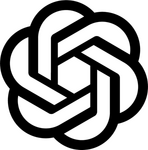
Recent advancements in AI, particularly with models like Claude 3.7 Sonnet, have showcased enhanced reasoning capabilities. This project aims to harness such models for excavation planning tasks, drawing parallels from complex automation scenarios in games like Factorio. We will explore the potential of these AI agents to plan and optimize excavation processes, transitioning from simulated environments to real-world applications with our excavator robot.
Keywords
GPT, Large Language Models, Robotics, Deep Learning, Reinforcement Learning
Labels
Semester Project , Master Thesis
Description
Work Packages
Requirements
Contact Details
More information
Open this project... call_made
Published since: 2025-05-07 , Earliest start: 2025-07-01 , Latest end: 2025-12-31
Organization Robotic Systems Lab
Hosts Terenzi Lorenzo
Topics Engineering and Technology
BEV meets Semantic traversability

Enable Birds-Eye-View perception on autonomous mobile robots for human-like navigation.
Keywords
Semantic Traversability, Birds-Eye-View, Localization, SLAM, Object Detection
Labels
Master Thesis , ETH Zurich (ETHZ)
Description
Work Packages
Requirements
Contact Details
More information
Open this project... call_made
Published since: 2025-04-29 , Earliest start: 2025-01-15 , Latest end: 2025-10-31
Organization Robotic Systems Lab
Hosts Gawel Abel
Topics Information, Computing and Communication Sciences , Engineering and Technology
Scene graphs for robot navigation and reasoning

Elevate semantic scene graphs to a new level and perform semantically-guided navigation and interaction with real robots at The AI Institute.
Keywords
Scene graphs, SLAM, Navigation, Spacial Reasoning, 3D reconstruction, Semantics
Labels
Master Thesis , ETH Zurich (ETHZ)
Description
Work Packages
Requirements
Contact Details
More information
Open this project... call_made
Published since: 2025-04-29 , Earliest start: 2025-01-15 , Latest end: 2025-10-31
Organization Robotic Systems Lab
Hosts Gawel Abel , Kneip Laurent
Topics Information, Computing and Communication Sciences , Engineering and Technology
Modelling and Optimizing the Power Budget of a Bridge-Mounted Camera System for River Waste Monitoring

In this thesis, you will contribute to the Autonomous River Cleanup (ARC) by helping develop SARA, a bridge-mounted, camera-based system for monitoring river waste. Your focus will be on modeling the system’s power dynamics to determine the ideal battery and solar panel size, and balancing runtime throughout the day with overall the system size and weight. If time allows, you will also validate your findings with tests on the real hardware.
Keywords
system modelling, power electronics, simulations
Labels
Semester Project , Bachelor Thesis
Description
Work Packages
Requirements
Contact Details
More information
Open this project... call_made
Published since: 2025-04-27 , Earliest start: 2025-05-05 , Latest end: 2025-09-30
Applications limited to ETH Zurich
Organization Robotic Systems Lab
Hosts Elbir Emre
Topics Engineering and Technology
Domain Adaptation Techniques for Vision Algorithms on a Smartphone for River Waste Monitoring

In this thesis, you will work on SARA, a bridge-mounted, smartphone-based system for detecting and monitoring river waste. The focus will be on selecting lightweight detection and classification models suitable for smartphones and exploring domain adaptation techniques to improve performance across different locations with minimal retraining. Your work will build on previous research at ARC and current literature to develop solutions that balance model robustness and computational efficiency.
Keywords
machine learning, computer vision, domain adaptation techniques
Labels
Semester Project
Description
Work Packages
Requirements
Contact Details
More information
Open this project... call_made
Published since: 2025-04-27 , Earliest start: 2025-05-05 , Latest end: 2025-09-30
Applications limited to ETH Zurich
Organization Robotic Systems Lab
Hosts Elbir Emre
Topics Engineering and Technology
Optimal Robot Configuration for Autonomous Waste Sorting in Confined Spaces

In this thesis, you will contribute to the Autonomous River Cleanup (ARC) by helping improve MARC, our robotic platform for autonomous waste sorting. Your work will focus on optimizing the robot arm configuration by simulating different base locations and degrees of freedom to achieve faster and more efficient pick-and-place movements in a confined space. You will build on our existing simulation environment to model and evaluate various setups.
Keywords
modelling and simulations, robotics, robot dynamics
Labels
Semester Project
Description
Work Packages
Requirements
Contact Details
More information
Open this project... call_made
Published since: 2025-04-27 , Earliest start: 2025-05-05 , Latest end: 2025-09-30
Applications limited to ETH Zurich
Organization Robotic Systems Lab
Hosts Elbir Emre
Topics Engineering and Technology
Thermal Protection of a Bridge-Mounted Camera System for River Waste Monitoring

The Autonomous River Cleanup (ARC) is developing SARA, the next iteration of a bridge-mounted, camera-based system to detect and measure riverine waste. Smartphones offer a compact, affordable, and powerful core for year-round monitoring but are vulnerable to shutdowns from extreme heat in summer and cold in winter. This thesis focuses on assessing these thermal challenges and designing protective solutions to ensure reliable, continuous operation.
Keywords
thermodynamics, heat transfer, testing
Labels
Semester Project , Bachelor Thesis
Description
Work Packages
Requirements
Contact Details
More information
Open this project... call_made
Published since: 2025-04-27 , Earliest start: 2025-05-05 , Latest end: 2025-09-30
Applications limited to ETH Zurich
Organization Robotic Systems Lab
Hosts Elbir Emre
Topics Engineering and Technology
Continual Learning and Domain Adaptation Techniques for a Camera-Based Waste Monitoring System on an Ocean Cleanup Vessel

This thesis, part of the Autonomous River Cleanup (ARC) initiative in collaboration with The SeaCleaners, explores adaptive computer vision methods for automated quantification of oceanic plastic waste on the Mobula 10 vessel. The work focuses on applying continual learning and domain adaptation techniques to improve a baseline detection model’s robustness to changing waste types and environments. The system will be evaluated in real-world conditions to assess its performance and guide future research in environmental monitoring.
Keywords
computer vision, continual learning, field testing, unsupervised domain adaptation, plastic pollution
Labels
Master Thesis
Description
Work Packages
Requirements
Contact Details
More information
Open this project... call_made
Published since: 2025-03-26 , Earliest start: 2025-05-01 , Latest end: 2025-12-31
Organization Robotic Systems Lab
Hosts Stolle Jonas , Elbir Emre
Topics Engineering and Technology
Extending Functional Scene Graphs to Include Articulated Object States
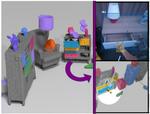
While traditional [1] and functional [2] scene graphs are capable of capturing the spatial relationships and functional interactions between objects and spaces, they encode each object as static, with fixed geometry. In this project, we aim to enable the estimation of the state of articulated objects and include it in the functional scene graph.
Keywords
scene understanding, scene graph, exploration
Labels
Master Thesis
PLEASE LOG IN TO SEE DESCRIPTION
More information
Open this project... call_made
Published since: 2025-03-25 , Earliest start: 2025-03-25
Applications limited to ETH Zurich , EPFL - Ecole Polytechnique Fédérale de Lausanne
Organization Computer Vision and Geometry Group
Hosts Bauer Zuria, Dr. , Trisovic Jelena , Zurbrügg René
Topics Information, Computing and Communication Sciences , Engineering and Technology
Generalist Excavator Transformer

We want to develop a generalist digging agent that is able to do multiple tasks, such as digging and moving loose soil, and/or control multiple excavators. We plan to use decision transformers, trained on offline data, to accomplish these tasks.
Keywords
Offline reinforcement learning, transformers, autonomous excavation
Labels
Semester Project , Master Thesis
PLEASE LOG IN TO SEE DESCRIPTION
More information
Open this project... call_made
Published since: 2025-03-11 , Earliest start: 2025-07-01 , Latest end: 2025-12-31
Organization Robotic Systems Lab
Hosts Werner Lennart , Egli Pascal Arturo , Terenzi Lorenzo , Nan Fang , Zhang Weixuan
Topics Information, Computing and Communication Sciences
Beyond Value Functions: Stable Robot Learning with Monte-Carlo GRPO

Robotics is dominated by on-policy reinforcement learning: the paradigm of training a robot controller by iteratively interacting with the environment and maximizing some objective. A crucial idea to make this work is the Advantage Function. On each policy update, algorithms typically sum up the gradient log probabilities of all actions taken in the robot simulation. The advantage function increases or decreases the probabilities of these taken actions by comparing their “goodness” versus a baseline. Current advantage estimation methods use a value function to aggregate robot experience and hence decrease variance. This improves sample efficiency at the cost of introducing some bias. Stably training large language models via reinforcement learning is well-known to be a challenging task. A line of recent work [1, 2] has used Group-Relative Policy Optimization (GRPO) to achieve this feat. In GRPO, a series of answers are generated for each query-answer pair. The advantage is calculated based on a given answer being better than the average answer to the query. In this formulation, no value function is required. Can we adapt GRPO towards robot learning? Value Functions are known to cause issues in training stability [3] and a result in biased advantage estimates [4]. We are in the age of GPU-accelerated RL [5], training policies by simulating thousands of robot instances simultaneously. This makes a new monte-carlo (MC) approach towards RL timely, feasible and appealing. In this project, the student will be tasked to investigate the limitations of value-function based advantage estimation. Using GRPO as a starting point, the student will then develop MC-based algorithms that use the GPU’s parallel simulation capabilities for stable RL training for unbiased variance reduction while maintaining a competitive wall-clock time.
Keywords
Robot Learning, Reinforcement Learning, Monte Carlo RL, GRPO, Advantage Estimation
Labels
Semester Project , Bachelor Thesis , Master Thesis
Description
Work Packages
Requirements
Contact Details
More information
Open this project... call_made
Published since: 2025-03-05
Organization Robotic Systems Lab
Hosts Klemm Victor
Topics Information, Computing and Communication Sciences , Engineering and Technology , Behavioural and Cognitive Sciences
Leveraging Human Motion Data from Videos for Humanoid Robot Motion Learning
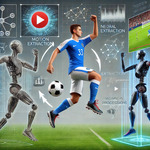
The advancement in humanoid robotics has reached a stage where mimicking complex human motions with high accuracy is crucial for tasks ranging from entertainment to human-robot interaction in dynamic environments. Traditional approaches in motion learning, particularly for humanoid robots, rely heavily on motion capture (MoCap) data. However, acquiring large amounts of high-quality MoCap data is both expensive and logistically challenging. In contrast, video footage of human activities, such as sports events or dance performances, is widely available and offers an abundant source of motion data. Building on recent advancements in extracting and utilizing human motion from videos, such as the method proposed in WHAM (refer to the paper "Learning Physically Simulated Tennis Skills from Broadcast Videos"), this project aims to develop a system that extracts human motion from videos and applies it to teach a humanoid robot how to perform similar actions. The primary focus will be on extracting dynamic and expressive motions from videos, such as soccer player celebrations, and using these extracted motions as reference data for reinforcement learning (RL) and imitation learning on a humanoid robot.
Labels
Master Thesis
Description
Goal
Contact Details
More information
Open this project... call_made
Published since: 2025-02-25
Applications limited to ETH Zurich , EPFL - Ecole Polytechnique Fédérale de Lausanne
Organization ETH Competence Center - ETH AI Center
Hosts Li Chenhao , Kaufmann Manuel , Li Chenhao , Li Chenhao , Kaufmann Manuel , Li Chenhao
Topics Engineering and Technology
Learning Agile Dodgeball Behaviors for Humanoid Robots
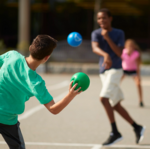
Agility and rapid decision-making are vital for humanoid robots to safely and effectively operate in dynamic, unstructured environments. In human contexts—whether in crowded spaces, industrial settings, or collaborative environments—robots must be capable of reacting to fast, unpredictable changes in their surroundings. This includes not only planned navigation around static obstacles but also rapid responses to dynamic threats such as falling objects, sudden human movements, or unexpected collisions. Developing such reactive capabilities in legged robots remains a significant challenge due to the complexity of real-time perception, decision-making under uncertainty, and balance control. Humanoid robots, with their human-like morphology, are uniquely positioned to navigate and interact with human-centered environments. However, achieving fast, dynamic responses—especially while maintaining postural stability—requires advanced control strategies that integrate perception, motion planning, and balance control within tight time constraints. The task of dodging fast-moving objects, such as balls, provides an ideal testbed for studying these capabilities. It encapsulates several core challenges: rapid object detection and trajectory prediction, real-time motion planning, dynamic stability maintenance, and reactive behavior under uncertainty. Moreover, it presents a simplified yet rich framework to investigate more general collision avoidance strategies that could later be extended to complex real-world interactions. In robotics, reactive motion planning for dynamic environments has been widely studied, but primarily in the context of wheeled robots or static obstacle fields. Classical approaches focus on precomputed motion plans or simple reactive strategies, often unsuitable for highly dynamic scenarios where split-second decisions are critical. In the domain of legged robotics, maintaining balance while executing rapid, evasive maneuvers remains a challenging problem. Previous work on dynamic locomotion has addressed agile behaviors like running, jumping, or turning (e.g., Hutter et al., 2016; Kim et al., 2019), but these movements are often planned in advance rather than triggered reactively. More recent efforts have leveraged reinforcement learning (RL) to enable robots to adapt to dynamic environments, demonstrating success in tasks such as obstacle avoidance, perturbation recovery, and agile locomotion (Peng et al., 2017; Hwangbo et al., 2019). However, many of these approaches still struggle with real-time constraints and robustness in high-speed, unpredictable scenarios. Perception-driven control in humanoids, particularly for tasks requiring fast reactions, has seen advances through sensor fusion, visual servoing, and predictive modeling. For example, integrating vision-based object tracking with dynamic motion planning has enabled robots to perform tasks like ball catching or blocking (Ishiguro et al., 2002; Behnke, 2004). Yet, dodging requires a fundamentally different approach: instead of converging toward an object (as in catching), the robot must predict and strategically avoid the object’s trajectory while maintaining balance—often in the presence of limited maneuvering time. Dodgeball-inspired robotics research has been explored in limited contexts, primarily using wheeled robots or simplified agents in simulations. Few studies have addressed the challenges of high-speed evasion combined with the complexities of humanoid balance and multi-joint coordination. This project aims to bridge that gap by developing learning-based methods that enable humanoid robots to reactively avoid fast-approaching objects in real time, while preserving stability and agility.
Labels
Master Thesis
Description
Goal
Contact Details
More information
Open this project... call_made
Published since: 2025-02-25
Applications limited to ETH Zurich , EPFL - Ecole Polytechnique Fédérale de Lausanne
Organization ETH Competence Center - ETH AI Center
Hosts Li Chenhao , Li Chenhao , Li Chenhao , Li Chenhao
Topics Engineering and Technology
Learning Real-time Human Motion Tracking on a Humanoid Robot

Humanoid robots, designed to mimic the structure and behavior of humans, have seen significant advancements in kinematics, dynamics, and control systems. Teleoperation of humanoid robots involves complex control strategies to manage bipedal locomotion, balance, and interaction with environments. Research in this area has focused on developing robots that can perform tasks in environments designed for humans, from simple object manipulation to navigating complex terrains. Reinforcement learning has emerged as a powerful method for enabling robots to learn from interactions with their environment, improving their performance over time without explicit programming for every possible scenario. In the context of humanoid robotics and teleoperation, RL can be used to optimize control policies, adapt to new tasks, and improve the efficiency and safety of human-robot interactions. Key challenges include the high dimensionality of the action space, the need for safe exploration, and the transfer of learned skills across different tasks and environments. Integrating human motion tracking with reinforcement learning on humanoid robots represents a cutting-edge area of research. This approach involves using human motion data as input to train RL models, enabling the robot to learn more natural and human-like movements. The goal is to develop systems that can not only replicate human actions in real-time but also adapt and improve their responses over time through learning. Challenges in this area include ensuring real-time performance, dealing with the variability of human motion, and maintaining stability and safety of the humanoid robot.
Keywords
real-time, humanoid, reinforcement learning, representation learning
Labels
Master Thesis
Description
Contact Details
More information
Open this project... call_made
Published since: 2025-02-25
Organization ETH Competence Center - ETH AI Center
Hosts Li Chenhao , Li Chenhao , Li Chenhao , Li Chenhao
Topics Information, Computing and Communication Sciences
Loosely Guided Reinforcement Learning for Humanoid Parkour
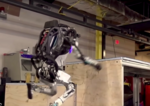
Humanoid robots hold the promise of navigating complex, human-centric environments with agility and adaptability. However, training these robots to perform dynamic behaviors such as parkour—jumping, climbing, and traversing obstacles—remains a significant challenge due to the high-dimensional state and action spaces involved. Traditional Reinforcement Learning (RL) struggles in such settings, primarily due to sparse rewards and the extensive exploration needed for complex tasks. This project proposes a novel approach to address these challenges by incorporating loosely guided references into the RL process. Instead of relying solely on task-specific rewards or complex reward shaping, we introduce a simplified reference trajectory that serves as a guide during training. This trajectory, often limited to the robot's base movement, reduces the exploration burden without constraining the policy to strict tracking, allowing the emergence of diverse and adaptable behaviors. Reinforcement Learning has demonstrated remarkable success in training agents for tasks ranging from game playing to robotic manipulation. However, its application to high-dimensional, dynamic tasks like humanoid parkour is hindered by two primary challenges: Exploration Complexity: The vast state-action space of humanoids leads to slow convergence, often requiring millions of training steps. Reward Design: Sparse rewards make it difficult for the agent to discover meaningful behaviors, while dense rewards demand intricate and often brittle design efforts. By introducing a loosely guided reference—a simple trajectory representing the desired flow of the task—we aim to reduce the exploration space while maintaining the flexibility of RL. This approach bridges the gap between pure RL and demonstration-based methods, enabling the learning of complex maneuvers like climbing, jumping, and dynamic obstacle traversal without heavy reliance on reward engineering or exact demonstrations.
Keywords
humanoid, reinforcement learning, loosely guided
Labels
Master Thesis
Description
Contact Details
More information
Open this project... call_made
Published since: 2025-02-25
Organization ETH Competence Center - ETH AI Center
Hosts Li Chenhao , Li Chenhao , Li Chenhao , Li Chenhao
Topics Information, Computing and Communication Sciences
Supervised learning for loco-manipulation
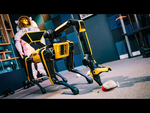
To spot arm operations, we propose a multi-phase approach combining supervised learning and reinforcement learning (RL). First, we will employ supervised learning to develop a model for solving inverse kinematics (IK), enabling precise joint angle calculations from desired end-effector pose. Next, we will utilize another supervised learning technique to build a collision avoidance model, trained to predict and avoid self-collisions based on arm configurations and environmental data. With these pre-trained networks, we will then integrate RL to generate dynamic and safe arm-motion plans. The RL agent will leverage the IK and collision avoidance models to optimize arm trajectories, ensuring efficient and collision-free movements. This entire pipeline could be back propagated while promising to enhance the accuracy, safety, and flexibility of robotic arm operations in complex environments.
Keywords
Spot, Supervised learning, loco-manipulation
Labels
Master Thesis , ETH Zurich (ETHZ)
PLEASE LOG IN TO SEE DESCRIPTION
More information
Open this project... call_made
Published since: 2025-02-10 , Earliest start: 2025-02-10 , Latest end: 2026-03-01
Organization Robotic Systems Lab
Hosts Mirrazavi Sina
Topics Information, Computing and Communication Sciences
Model-Based Reinforcement Learning for Loco-manipulation
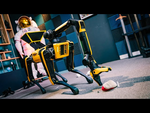
This project aims to develop a model-based reinforcement learning (RL) framework to enable quadruped robots to perform dynamic locomotion and manipulation simultaneously by leveraging advanced model-based RL algorithms such as DeamerV3, TDMPC2 and SAM-RL. We will develop control policies that can predict future states and rewards, enabling the robot to adapt its behavior on-the-fly. The primary focus will be on achieving stable and adaptive walking patterns while reaching and grasping objects. The outcome will provide insights into the integration of complex behaviors in robotic systems, with potential applications in service robotics and automated object handling.
Labels
Master Thesis , ETH Zurich (ETHZ)
PLEASE LOG IN TO SEE DESCRIPTION
More information
Open this project... call_made
Published since: 2025-02-10 , Earliest start: 2025-02-10 , Latest end: 2026-02-10
Organization Robotic Systems Lab
Hosts Mirrazavi Sina
Topics Information, Computing and Communication Sciences
Integrating OpenVLA for Vision-Language-Driven Loco-Manipulation robotics scenarios
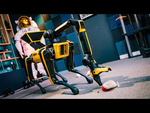
This thesis proposes to integrate and adapt the OpenVLA (Open-Source Vision-Language-Action) model to control the Spot robotic arm for performing complex grasping and placing tasks. The study will focus on enabling the robot to recognize, grasp, and organize various toy-sized kitchen items based on human instructions. By leveraging OpenVLA's robust multimodal capabilities, this project aims to bridge the gap between human intent and robotic actions, enabling seamless task execution in unstructured environments. The research will explore the feasibility of fine-tuning OpenVLA for task-specific operations and evaluate its performance in real-world scenarios, providing valuable insights for advancing multimodal robotics.
Labels
Master Thesis , ETH Zurich (ETHZ)
PLEASE LOG IN TO SEE DESCRIPTION
More information
Open this project... call_made
Published since: 2025-02-10 , Earliest start: 2025-02-10 , Latest end: 2026-02-10
Organization Robotic Systems Lab
Hosts Mirrazavi Sina
Topics Information, Computing and Communication Sciences
Reinforcement Learning for Excavation Planning In Terra

We aim to develop a reinforcement learning-based global excavation planner that can plan for the long term and execute a wide range of excavation geometries. The system will be deployed on our legged excavator.
Keywords
Keywords: Reinforcement learning, task planning
Labels
Semester Project , Master Thesis
Description
Work Packages
Requirements
Contact Details
More information
Open this project... call_made
Published since: 2025-02-03 , Earliest start: 2025-07-01 , Latest end: 2025-12-31
Organization Robotic Systems Lab
Hosts Terenzi Lorenzo
Topics Information, Computing and Communication Sciences
Model Based Reinforcement Learning

We want to train an excavator agent to learn in a variety of soil using a fast, GPU-accelerated soil particle simulator in Isaac Sim.
Keywords
particle simulation, omniverse, warp, reinforcement learning, model based reinforcement learning.
Labels
Semester Project , Master Thesis
Description
Work Packages
Requirements
More information
Open this project... call_made
Published since: 2025-02-03 , Earliest start: 2025-06-01 , Latest end: 2025-12-31
Organization Robotic Systems Lab
Hosts Egli Pascal Arturo , Terenzi Lorenzo
Topics Information, Computing and Communication Sciences , Engineering and Technology
Reinforcement Learning for Particle-Based Excavation in Isaac Sim

We want to train RL agents on our new particle simulator, accelerated on the GPU via warp in Isaac sim.
Keywords
particle simulation, omniverse, warp, reinforcement learning
Labels
Semester Project , Master Thesis
Description
Work Packages
Requirements
Contact Details
More information
Open this project... call_made
Published since: 2025-02-03 , Earliest start: 2025-06-01 , Latest end: 2025-12-31
Organization Robotic Systems Lab
Hosts Egli Pascal Arturo , Mittal Mayank , Terenzi Lorenzo
Topics Information, Computing and Communication Sciences
Perceptive Reinforcement Learning for Exavation

In this project, our goal is to leverage precomputed embeddings(VAE in Isaacsim) from 3D earthworks scene reconstructions to train reinforcement learning agents. These embeddings, derived from incomplete point cloud data and reconstructed using an encoder-decoder neural network, will serve as latent representations. The main emphasis is on utilizing these representations to develop and train reinforcement learning policies for digging tasks.
Keywords
LIDAR, 3D reconstruction, Isaac gym, deep learning, perception, reinforcement learning
Labels
Semester Project , Master Thesis
Description
Work Packages
Requirements
Contact Details
More information
Open this project... call_made
Published since: 2025-02-03 , Earliest start: 2025-06-01 , Latest end: 2025-12-31
Organization Robotic Systems Lab
Hosts Höller David , Terenzi Lorenzo
Topics Information, Computing and Communication Sciences
Reiforcement Learning of Pretrained Trasformer Models

We want to train RL agents on our new particle simulator, accelerated on the GPU via warp in Isaac sim.
Keywords
Keywords: particle simulation, omniverse, warp, reinforcement learning
Labels
Semester Project , Master Thesis
Description
Work Packages
Requirements
Contact Details
More information
Open this project... call_made
Published since: 2025-02-03 , Earliest start: 2025-07-01 , Latest end: 2025-12-31
Organization Robotic Systems Lab
Hosts Terenzi Lorenzo
Topics Information, Computing and Communication Sciences
Multiagent Reinforcement Learning in Terra

We want to train multiple agents in the Terra environment, a fully end-to-end GPU-accelerated environment for RL training.
Keywords
multiagent reinforcement learning, jax, deep learning, planning
Labels
Semester Project , Master Thesis
Description
Work Packages
Requirements
Contact Details
More information
Open this project... call_made
Published since: 2025-02-03 , Earliest start: 2025-07-01 , Latest end: 2025-12-31
Organization Robotic Systems Lab
Hosts Terenzi Lorenzo
Topics Information, Computing and Communication Sciences
Diffusion-based Shared Autonomy System for Telemanipulation

Robots may not be able to complete tasks fully autonomously in unstructured or unseen environments, however direct teleoperation from human operators may also be challenging due to the difficulty of providing full situational awareness to the operator as well as degradation in communication leading to the loss of control authority. This motivates the use of shared autonomy for assisting the operator thereby enhancing the performance during the task. In this project, we aim to develop a shared autonomy framework for teleoperation of manipulator arms, to assist non-expert users or in the presence of degraded communication. Imitation learning, such as diffusion models, have emerged as a popular and scalable approach for learning manipulation tasks [1, 2]. Additionally, recent works have combined this with partial diffusion to enable shared autonomy [3]. However, the tasks were restricted to simple 2D domains. In this project, we wish to extend previous work in the lab using diffusion-based imitation learning, to enable shared autonomy for non-expert users to complete unseen tasks or in degraded communication environments.
Keywords
Imitation learning, Robotics, Manipulation, Teleoperation
Labels
Semester Project , ETH Zurich (ETHZ)
Description
Work Packages
Requirements
Contact Details
More information
Open this project... call_made
Published since: 2024-12-02 , Earliest start: 2024-11-01 , Latest end: 2025-11-01
Applications limited to ETH Zurich , University of Zurich
Organization Robotic Systems Lab
Hosts Elanjimattathil Aravind
Topics Information, Computing and Communication Sciences , Engineering and Technology
Student Theses in Industry
We have a large number of industry partners who search for excellent students to conduct their student theses at the company or at ETH but in close collaboration with them (joint supervision by industry and ETH).
Ammann Group (Switzerland)
The Ammann Group is a worldwide leader in the manufacture of mixing plants, machinery, and services in the construction industry, with core competence in road construction and landscaping as well as in the transport infrastructure.
We are collaborating with Ammann to automate construction equipment
Maxon (Switzerland)
Maxon develops and builds electric drive systems that are among the best in the world. Their drive systems can be found wherever extreme precision and the highest quality standards are indispensable – on Earth, and on Mars.
Shunk (Germany)
Legged Wheel Chair
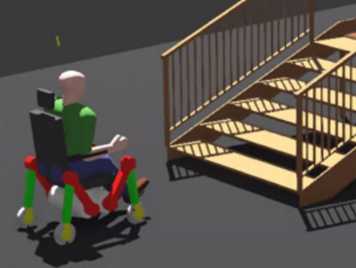
This project aims at extending a dynamic simulation and locomotion controllers for a robotized wheelchair able to handle difficult terrains including stairs. This project will prepare the prototype phase coming next.
.
Note on plagiarism
We would like to suggest every student, irrespective of the type of project (Bachelor, Semester, Master, ...), to make himself/herself familiar with ETH rules regarding plagiarism